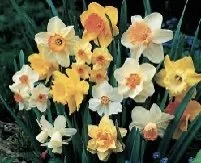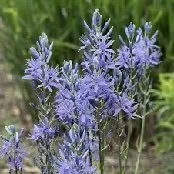Autumn—Time to Evaluate your Sustainable landscape & Plan for 2026
September 2025. How did your garden grow after early summer and now drought since mid-summer? As the Upper Valley climate is slowly changing, our landscaping decisions need to consider the landscape and garden’s ability to adapt to new conditions. Close observations of landscapes and gardens through all seasons have a lot to show and teach us.
A resilient landscape imitates an area’s natural ecosystem.
National Geographic defines an ecosystem as “a geographic area where plants, animals and other organisms, as well as weather and landscape, work together to form a bubble of life. They contain living as well as non-living factors.” In planning for your landscape, think beyond your favorite flowers or trees. Imagine “plant systems” instead—include a combination of ground covers, perennials, vines, shrubs and understory and overstory trees that are well-adapted to similar growing conditions. Choose native plants that provide the best food & support for our pollinators.
Resilient ecosystems adapt best to slowly changing conditions. According to the USDA Plant Hardiness Zone Map, the Average Annual Extreme Minimum Fahrenheit Temperature, updated in late 2023-2025, in Hanover, NH is 5a (-20 to -15)—it rose an extremely fast 10 degrees since 1991, reflecting the effects of the earth’s warming climate.
Soil Sequestration
This winter, plan to learn about soil sequestration - how land can be managed to increase the amount of carbon captured and stored by No-till gardening, mulching, cover crops, aerating soils. Plants use sunlight, water and carbon dioxide to create food (sugars) for themselves. Oxygen is released as a by-product into the air.
Resilient Gardening Tips: Before the ground freezes
Cover all open soil with organic mulch—cut grass, selective vegetable and cut leaves (see https://www.loveyourlandscape.org/expert-advice/shrubs-and-flowers/basic-care/mulching-tips-from-the-pros/)
Fall is the ideal time to plant trees and shrubs (3-4 weeks before a hard freeze)
Water trees and shrubs until ground freezes.
Protect Evergreen Plants
Anti-desiccant sprays prevent “winter burn” by forming protective, waxy film on foliage so the plant can hold onto its moisture.
Spray before temperatures are consistently below freezing.
Plant deer & rodent resistant bulbs such as:
Daffodil & Jonquils
“Blue Danube”



